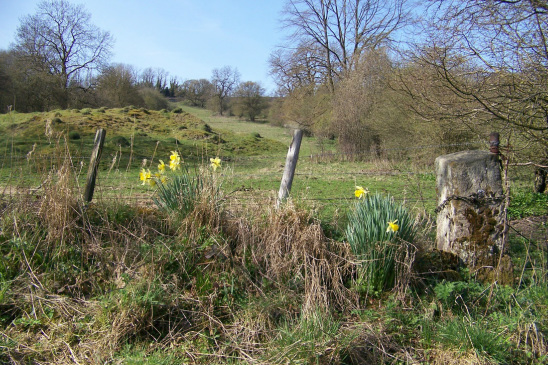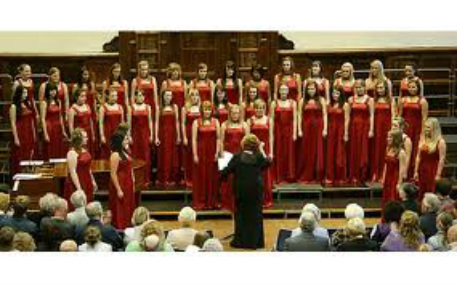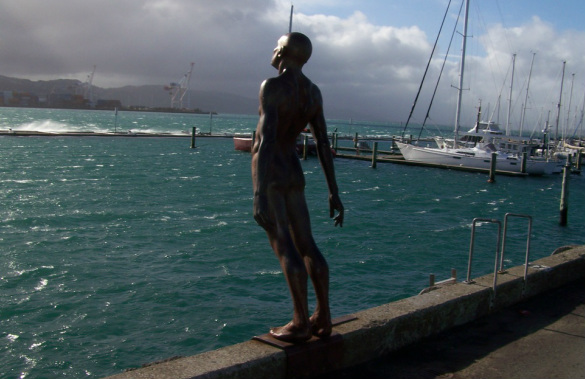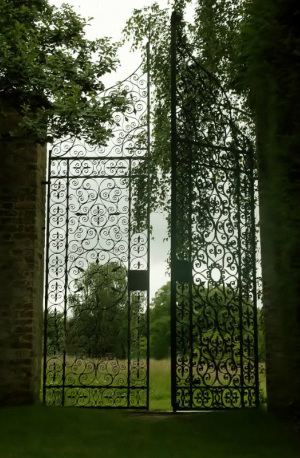|
This morning I sat in my studio with an artist friend, Langley, and watched the rain clattering through the apple trees. We talked about a movement improvisation session I led in Hartington many years ago for a group of people who'd never danced before. It was one of those extraordinary times, when people achieved far more than they ever knew they could. They were all so shy about moving, or thought they were, yet over two days they were carried away by the imagination to move more than they ever knew they could. It works like that sometimes. Langley was talking about it as one of the most memorably creative times of his life - entering the surreal landscape of the mind, whilst remaining so acutely aware of the room, of light falling on a ceiling fan, the motes of dust, the people around him.
I've been in London working with my dance partner Tim Taylor, joined by Jacky Lansley. Tim and I are so familiar with improvising together we can move for over an hour without speaking, loving this shared and fluent language of imagination and sensation. Dancing with Jacky over the last two meetings has brought a whole new spectrum of colour to the experience. How can I describe to someone the experience of movement improvisation - both of watching and of engaging in it - in a way that conveys meaning, as well as satisfying my need for structure and clarification? I feel better when I've danced, and more essentially danced with others. I am grounded, calmer but at the same time more energetic. Ideas flow - I have spent time engaged in a language that's as essential to my life as reading and writing. We let go of the thinking mind and a dream-like state informs the 'material', but at the same time - through years of theatre training and experience - there's an acute awareness of form, content, meaning and performance. Yesterday, a long warm up led by Jacky, finished with a port de bras adage exercise as we might do in ballet class. This simple sequence of movements gave us the framework for two improvised pieces. We worked in pairs with one person setting the 'task' and the other two 'performing'. Tim was the first 'director,' asking us punctuate the adage exercise with words if we found a moment that felt particularly 'satisfying' - and also include sitting on a chair and talking about our experience of the heat wave. Jacky similarly used the adage, adding exit and entrance, and a discussion about breakfast. My own instructions were three words - walk, lean, drape. How absurd it must sound, and indeed a kind of surreal landscape is created - a theatre of the ridiculous, and at the same time elements that are shocking, profound, funny, and sad. I saw Jacky draped in a black shawl - a woman from a country far away. Tim - any man - observing her analytically as he leant against the wall, cigarette in hand - speaking coldly as he described her smallest gesture. She held a stone in her right hand. She looked so vulnerable. Then the image shifted and the power was with her as she attempted to place the stone on Tim's head. Tim's work is always so clear and polished - you'd never know he was improvising. He is comical, clever, accomplished, elegant. He never clowns around. Jacky is the most wonderful clown, bringing a sense of play - trusting to share and embody the journey of her imagination. She is provocative, skilled at shifts in tempo and emotion, the power of the costume and object to convey meaning - trusting the confusion as part of the process, transforming the moments when we lose focus and see the whole activity as oddly foolish, back into hilarious moments of theatre. Over lunch we discussed 'issues' and how to convey meaning through theatre. Jacky and I argued much over the politics of ballet. I rarely argue and never have with Tim - but it felt good and essential, and brought a new dynamic to the solos we performed in the afternoon. The task was to do a stand-up comedy act on the theme of Issues - political or other! Sheer terror. Tim was funny as soon as he opened his mouth, by his use of language and his tiniest gesture. Jacky was so engaging in the way she allowed us to witness her thought process and the meandering path through confusion to meaning and emotion. I know I was not funny at all - I wish I could be. I found my way in as ever, by creating structures - tidying the studio and organising bananas and oranges into patterns on the chair, until I found it - the memory of a performance I witnessed once in Utrecht. We were locked in a huge abandoned gymnasium to watch an innovative theatre production. There were many of us, all sitting on the concrete floor - there was a large cast of actors, singers and dancers. It was a long production, and no way to easily get out of the building. We witnessed scenes of torture, of babies and children hurt, of rape, and violence - and all around people were laughing. I had the sense that at any moment someone could be pulled from the audience and killed and nobody would prevent it. I was so deeply shocked - not by the performance - but by the audience response, that I couldn't speak about it for a long time. It was the horror of this that came back so powerfully as I found my way into the improvisation. It was embodied and given form for the first time after years - through theatre not therapy.
0 Comments
The morning before a journey from Derbyshire to London I often lie in bed and envisage myself somehow disembodied like a little plastic figure in a board game, making a long circuit round the board before I return home to bed. It feels remarkable then that a body can cover so many miles in a day and arrive back where it started, unperturbed.
Then there is the journey I returned from last week - Derbyshire to Wellington and Sydney and back in two and a half weeks, and I'm still trying to assimilate the disturbance. It's an odd thing being cooped up in a flying fridge-cold capsule in the semi dark for fourteen hours, then another seven, then another three, broken by periods of feeding on things like mango ice lolly, and curry. The landings at various airports are equally unsettling, alien brightly lit environments with winding queues of tired people, and so many interrogations by humourless officials that I became obsessed about the whereabouts of my passport even though it was always in my bag. How do people manage when they don't understand the language? It must be terrifying. I had the most wonderful time away, full of love and new discovery. The other side of the world felt fresh, youthful and full of possibility. I had the sense of being able to achieve anything - so much happiness and exhilaration Such luxury to cross the world and return in so little time has to come with a cost, and it's been curious to observe it. There's an electric fuzziness around the edges of sleep - as if at brain level something magnetic has been disrupted. Dreams are dense with the quality of damp suffocating sponge, sleep is like anaesthetic. Nothing is familiar - I still feel far away - a sense of dislocation. I can't connect - my loved ones are unreachable. Today I walked in the fields near home - in the place I love more than anywhere. Old Lane was once a road created for the lead miners but it's a long time since lead was mined in the hills around Wirksworth. It's scarcely a track any longer, the walls on either side are tumbled down, it's full of rocks and deep puddles after the rain. A few sheep graze between White Hills - the old spoil heaps covered in rock rose and wild thyme. The track twists up past fallen barns and capped off lead mines to a tunnel of blackthorn, and the old gardens of a dwelling below The High Peak Trail - raspberry canes tangled with willow herb, horsetail ferns, and columbine. I am trying to reclaim my roots - and at the same time to recall the sense of wonder and new possibility I felt in Australia - to bring it into my life here. On Monday, my first day back in England from the other side of the world, I attended the funeral of Pamela Cook, creator and director of Cantamus Girls Choir. The funeral was held in Southwell Minster in Nottinghamshire - the day warm and sultry, the trees in the churchyard at their most magnificent. The
beautiful Norman minster was packed – so many of Pam’s girls past and present, as well as parents and friends. I’ve never attended any church service where the congregation sang so full-heartedly – and so well. We used to joke that there must be something in the water in Mansfield that could produce a choir of girls who sang like angels. But we were well aware that in truth it was the remarkable wisdom, talent, determination and hard work of Pamela, and the people she inspired to work alongside her over forty five years. That she knew how to train voices to perfection was evident in the results she achieved – not only the many awards won by the choir, but also the fact that so many young girls went on to further training in the most prestigious music colleges in the country. She gave generations of young girls the framework for a whole way of life. I used to slip into the end of rehearsals after working with individual girls, and delight in watching her work. She was rigorous and impeccable in her approach. There were no concessions and no excuses. She knew that art, that anything worthwhile, is hard won – only achieved through intense physical and mental effort. Riddled with arthritis she continued to work through her pain, and demanded that the girls likewise gave everything in the hours they worked with her – or leave. In a short time they knew not only how to sing, but how to concentrate, apply correction, focus; they gained insight into a huge range of music, and into the many elements of performance, stillness, focus – and so much more. On a personal level I so appreciated her complete trust in me as a Pilates teacher, and I enjoyed our conversations about the most talented of her girls – the ones I worked with on posture and movement. With their deep understanding of how to work and their determination, they made progress so quickly I could see results within two sessions. I am so glad to have met Pamela and to have worked for her the last three years of her life. She was the most extraordinary, inspiring, and beautiful woman. Listening now to a recording of the girls singing I feel a mixture of sadness and happiness, and huge gratitude. http://www.cantamus.com I’m sitting on my bed in Brooklyn, Wellington, looking out at the weather, waiting for the sheeting rain to empty the sky.
Yesterday I walked down to the city in the wildest wettest gale I’ve ever known. It was exhilarating, and the park smelt wonderfully woody. We sat in a bar on the edge of the harbour and watched the sky change by the minute – sometimes the tall buildings the other side of the bay disappeared in cloud, other times the sky cleared a little and they stood out brilliantly against deep green grey water – the wind flinging white foam into spray. A bird flying inland was blown out to sea again, as helpless as a kite. As we walked out of the bar, holding onto our hats, we were whirled off course – we pushed and leant against wind that caught us by surprise as it whipped round the corners of buildings. We reached the centre of the city and for a brief moment the sun came through as if liquid silver were poured from a funnel in the sky - the pavement, the concrete walls mirroring brilliance. All night the gale was wild, followed by moments of stillness when the wind fell and the rain stopped, and silence was so restful. Now there’s a slight clearing of whiteness in the grey sky and I’m longing to get out down to the city again. I’m thinking of the heat wave the other side of the world in England and how the warmth and light of the sun transforms everything, and how strange and wonderful these contrasts in weather. When I used to travel to Wales for Simon Whitehead's Locator workshops in the Preseli Hills, on the first morning, before we tramped out into the dense and magical Ty Canol Woods, Simon would speak about the time it takes to arrive in a new place. I don't think I ever really knew what he meant until now - here in New Zealand many years later.
I've been here just over a week now. I connected to the country immediately and felt at home, but a mixture of jet-lag and the sheer joy of being reunited with family had a curious physical effect. I had so much energy the first two days that a fast walk to town - two miles down a steep winding road and then uphill again laden with veg from the market, and a further evening walk to the wind turbine at the top of the mountain, felt like nothing. I had bags more energy than I have at home. But after two days I felt so wired I couldn't sleep - a buzzing of the nervous system that felt electric and unsettling. Two days ago I was on the ferry to the south island - the weather was glorious and we'd just reached open sea. I looked out over the water and saw an albatross - a bird I'd seen as almost mythical since reading Coleridge The Ancient Mariner. Long elegant wings outstretched, its graceful body seemed to float through the air - so beautiful. This morning back in Wellington I look out at mist over the harbour, and listen to my baby cousin happily playing in the kitchen. Peace - a sense of calm. I have really arrived. I’m the other side of the world in New Zealand.
I had no desire to travel so far until three years ago I reconnected with my cousin who lives in Wellington, and then a year ago my son left home to travel and work in New Zealand. Suddenly it was on the radar, and then earlier this year it seemed imperative to visit before my son moved to Australia for another long stretch of time. I’ve always had a very strong sense of place. I can arrive somewhere new and feel uplifted, or conversely depressed – and this applies to buildings as well as towns and countries. The reaction can be strong enough to make a prolonged stay unhappy – although I’d struggle to describe exactly why. I’ve met others who feel the same. It’s as if place is an extension of the body – when we feel at home and attuned we expand into the space around – there’s a buzz and a sense of heightened awareness and energy. I’m sitting on the bed in my room in Brooklyn. The sun is shining through the windows and I Iook down on this city, out over the sea to fold on fold of mountains stretching into the distance, and I’m very happy, not only for the reunion with family. After far too long in a cramped and dark plane the last hop from Melbourne to Wellington was extraordinary. Over an hour of blue sea and then this far flung island slowly came into sight, a stretch of shoreline, the faint white line of waves, and I felt an uplifting of spirit. Suddenly we were flying over this scarcely populated wilderness of mountains and water – looking from the air like one of those relief maps of mountains you see in museums, all tones of dark green and grey with snowy ridges in the distance. We crossed the top of south island and seemed to be approaching Wellington, but all I could see below was the sea, so close it seemed the plane might bob down into the water like some kind of surreal dream. Then suddenly we struck the runway from the edge of the shore and touched down into the smallest airport I’ve seen since Kerry. Since then I’ve walked much, down to the sea front where the water is a beautiful opaque turquoise, up through the parks, through dense shiny foliage, past wooden buildings in faded colours, and I’m reminded of different places I love – there’s much of Ireland here – the proximity of sea and mountains, the more exotic vegetation that grows on our western shores, maybe a sense of Scandinavia with such clarity of light and space. And it all feels new in a physical sense in the same way as Iceland – volatile, energetic, elemental, and as if humankind only touches the surface with little impact. A feeling of immediacy is the best way I can describe it. I am very happy here, I look forward to the adventures ahead. Last Saturday I visited Trent Park for a walk with my cousin. Since my last visit over a year ago, Middlesex University has vacated the campus, and the mansion and the gardens are falling deeper and deeper into neglect.
I was a student there over thirty years ago during the heyday for performance arts courses. The BA in Performance Arts was the first in the country, and I was the second year to go through – experimental, free, creative times. We were so lucky to have been students then. In those days the grounds and buildings were in good repair – those wonderful sweeping lawns, the huge cedars, the dramatic statuary and the terrace with a view of the lake and the distant obelisk. There were formal gardens, an orangery that housed the music block, a magnificent wisteria walk, and everywhere we went the sound of students practising music. Only the Japanese water garden was a secret, overgrown, enchanting place we discovered one afternoon, ducking under low hanging tree and banks of overgrown shrubs to find it. Over the years I’ve seen the gradual decline of both the gardens and the buildings each time I’ve visited, but it was most marked on Saturday. It was a glorious day – the meadows deep with long grasses, Vetch, Stitchwort, and Buttercups, the distant trees dark and lush. We walked around the lake with its views of the mansion, to the Japanese garden – now beautifully restored as the rest falls into decline. Below the mansion the lawns were overgrown; thistle standing sharp amidst the swathes of silver grass. There were security guards with dogs patrolling the buildings but we walked undisturbed up to dance studio A, which looked just as if the last class had only just vacated it. Through the window the mirrors reflected back our image, the drapes were still hanging, the wooden floor shiny and perfect. We walked through the overgrown formal gardens, and up the wisteria walk to the elegant wrought iron gates and then into another overgrown field, past buildings fallen into neglect. It had a wonderful and sad kind of beauty. Last month I watched the Channel 4 documentary drama about Trent Park’s role during WW2, Spying on Hitler's Army - The Secret Recordings. As students we all knew that it had been a prison of war camp, though we had no idea of the significance of this – we were told stories that seem highly unlikely now that the lake was full of barbed wire. Far more likely I think that all the bugging equipment was pitched into the lake for want of a better place to hide it. What an extraordinary thought that even the trees were bugged and every conversation between the German officers was documented. If only we’d known it would have made our stay there even more potent and dramatic. Nostalgia is a sweet and powerful emotion. I have more nostalgia about this place than any other. We were young and it was an incredible three years, full of creativity, absurdity, hope, and challenge. For information about a site specific project The Secret Listeners, based on the role of Trent Park during the war, and directed by ex student Thomas Kampe, see http://www.secretlisteners.com/index.html |
AuthorTricia Durdey dances, writes, and teaches Pilates. Archives
October 2017
|





 RSS Feed
RSS Feed